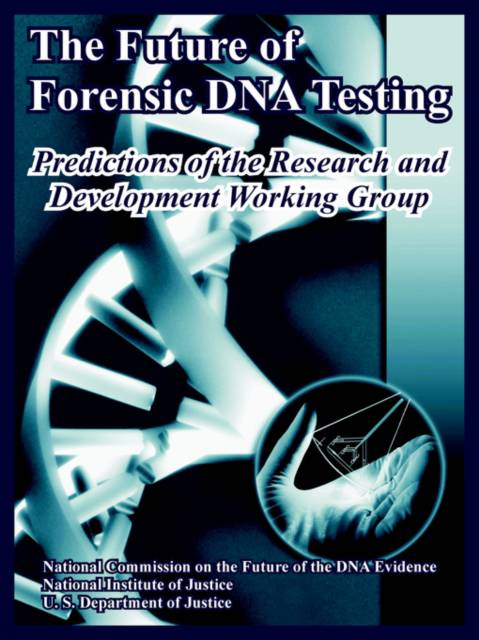
Bedankt voor het vertrouwen het afgelopen jaar! Om jou te bedanken bieden we GRATIS verzending (in België) aan op alles gedurende de hele maand januari.
- Afhalen na 1 uur in een winkel met voorraad
- In januari gratis thuislevering in België
- Ruim aanbod met 7 miljoen producten
Bedankt voor het vertrouwen het afgelopen jaar! Om jou te bedanken bieden we GRATIS verzending (in België) aan op alles gedurende de hele maand januari.
- Afhalen na 1 uur in een winkel met voorraad
- In januari gratis thuislevering in België
- Ruim aanbod met 7 miljoen producten
Zoeken
The Future of Forensic DNA Testing
Predictions of the Research and Development Working Group
Us Department of Justice, US Department of Justice
Paperback | Engels
€ 40,45
+ 80 punten
Omschrijving
The National Commission on the Future of DNA Evidence was created in 1998 at the request of Attorney General Janet Reno. When she read about the use of DNA to exonerate someone wrongfully convicted of rape and homicide, she became concerned that others might also have been wrongly convicted. The Attorney General then directed the National Institute of Justice (NIJ) to identify how often DNA had exonerated wrongfully convicted defendants. After extensive study, NIJ published the report Convicted by Juries, Exonerated by Science: Case Studies in the Use of DNA Evidence to Establish Innocence After Trial, which presents case studies of 28 inmates for whom DNA analysis was exculpatory. On learning of the breadth and scope of the issues related to forensic DNA, the Attorney General asked NIJ to establish the Commission as a means to examine the future of DNA evidence and how the Justice Department could encourage its most effective use. The Commission was appointed by the former Director of the National Institute of Justice, Jeremy Travis, and represents the broad spectrum of the criminal justice system. Chaired by the Honorable Shirley S. Abrahamson, Chief Justice of the Wisconsin State Supreme Court, the Commission consists of representatives from the prosecution, the defense bar, law enforcement, the scientific community, the medical examiner community, academia, and victims' rights organizations.
Specificaties
Betrokkenen
- Auteur(s):
- Uitgeverij:
Inhoud
- Aantal bladzijden:
- 100
- Taal:
- Engels
Eigenschappen
- Productcode (EAN):
- 9781410219480
- Verschijningsdatum:
- 24/01/2005
- Uitvoering:
- Paperback
- Formaat:
- Trade paperback (VS)
- Afmetingen:
- 210 mm x 279 mm
- Gewicht:
- 244 g

Alleen bij Standaard Boekhandel
+ 80 punten op je klantenkaart van Standaard Boekhandel
Beoordelingen
We publiceren alleen reviews die voldoen aan de voorwaarden voor reviews. Bekijk onze voorwaarden voor reviews.









